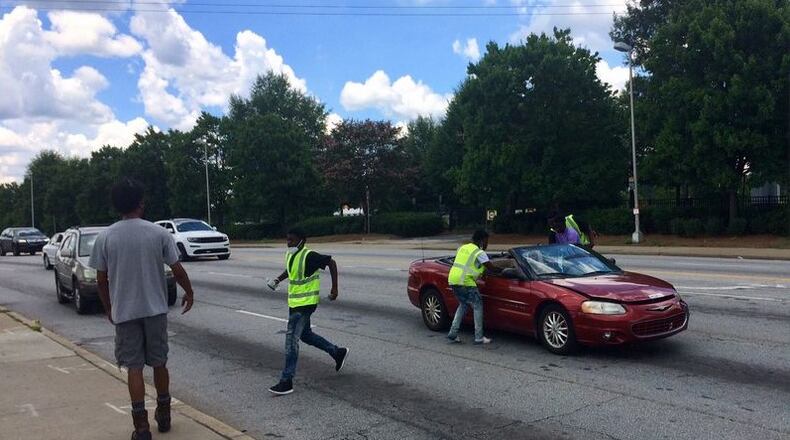After a year that brought more attention to the young men known as Atlanta’s “water boys,” the city is studying whether it should start its own water bottling and distribution business that could employ some of the teens.
The Atlanta City Council on Monday passed a resolution that tasks the city with conducting a feasibility study on whether it should launch the new venture.
Specifically, the city is considering starting a “municipal enterprise,” a business owned by a local government that generates revenue for local communities. The resolution states that the program could provide job opportunities for what the Council calls the city’s “young water vendors — mostly African American young men commonly referred to as ‘the water boys’ — selling water at street corners and on exit ramps throughout 2020.”
The enterprise could also generate funds to support low-income communities in Atlanta, according to the resolution, which was sponsored by councilmembers Antonio Brown and Natalyn Archibong.
Last summer, Atlanta police and city officials announced they were cracking down on the teens selling bottled water, following a spike in shootings and arrests stemming from disputes between young people and drivers on Atlanta’s roadways.
Selling water at intersections is illegal, though Mayor Keisha Lance Bottoms acknowledged their “entrepreneurial spirit” in an administrative order last June. Her order created an advisory council tasked with coming up with strategies to help promote youth entrepreneurship in the city.
The feasibility study is set to include potential water bottling distributors, the legal requirements for starting a municipal enterprise and a cost and revenue analysis. A new working group will have four months to present its findings to the Council.
About the Author
The Latest
Featured



